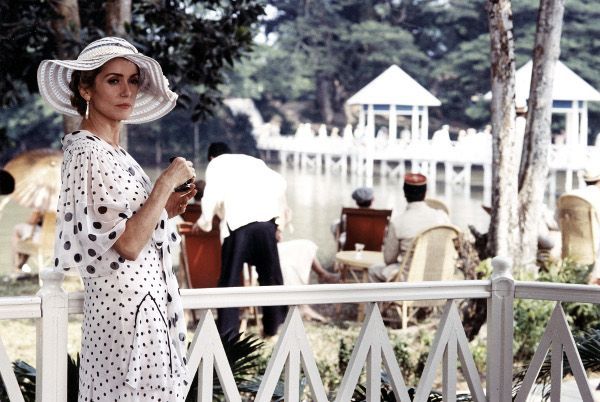Eye For Film >> Movies >> Indochine (1992) Film Review

Just because a chaise longue looks beautifully appointed and sumptuous, does not mean that sitting in it for two-and-a-half hours will prove an altogether satisfying experience. After that amount of time, the lumps and bumps make themselves known and the cloth loses its ability to distract attention. So it is with Régis Wargnier's Indochine, which though beautifully shot by François Catonné, who lights star Catherine Deneuve so expertly that she seems to emit an inner glow, doesn't deliver quite enough in dramatic terms.
Deneuve is Eliane, the imperious owner of a rubber plantation, which she runs with her father. She has lived in the French colony all her life and considers it fully her home, more than happy to adopt her friends' Vietnamese daughter Camille (Linh Dan Pham) after they are killed in a plane crash. We learn this in an opening scene that has 'epic set-piece' written all over it, as boats cut gracefully through the water, while Deneuve tells us what's going on via voice-over - a device that is over-used throughout.

The film's army of writers Erik Orsenna, Louis Gardel, Cathering Cohen and Wargnier are unable to decide what they want, unable to settle on melodramatic romance, family potboiler or political revolution, and end up offering a mix - or, more accurately, a competition - between all three. The romance initially offers heat, as the aloof Eliane falls for the charms of much younger French naval officer Jean-Baptiste (Vincent Perez) only to soon find herself in a rivalry with Camille. But the emotional heft of this situation is largely squandered when Camille descends to chase Jean-Baptiste off to the remote outpost he has been condemned to after a dust up with Eliane.
Plot points are ticked off a checklist but the characters remain remote, while colonial brutality is given little more than lip service. Denueve makes her character's enigmatic attitude work in her favour, helped by the fact that she is a screamingly obvious metaphor for the fading rule of colonial France, but most of the rest of the cast fade into the backdrop. While it is plausible for Camille to run after Jean-Baptiste is a fit of youthful romance, his motivations as the film progresses become increasingly hard to believe.
The biggest problem ends up being Camille herself, who far from appearing like a revolutionary who we are expected to believe becomes a living legend, isn't given enough screen time to develop any sort of character - the plot may turn around her but the cameras are unwilling to leave Deneuve's side.
The restored version of the film is screening at Ciné Lumière on January 7, 8, 11 and 12.
Reviewed on: 05 Jan 2017

















